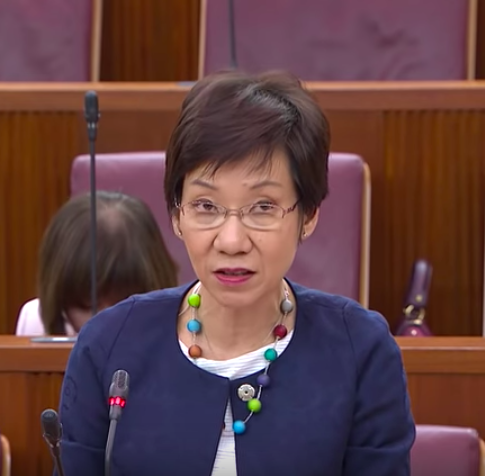Singapore: In commemorating international women’s month, Grace Fu, Singapore’s Minister for Culture, Community, and Youth, said, “We need everyone to be involved in striving towards a gender-equal society.”
Ms Fu was speaking at a conference organised by the Singapore Chinese Chamber of Commerce and Industry (SCCCI) at the Shangri-La Hotel on March 3, Sunday. She emphasized how much women have contributed to building the Republic, even as Singapore celebrates its bicentennial this year.
The Minister for Culture, Community, and Youth said, “It is an opportunity for us to reflect on the longer historical evolution of women in Singapore, and impact they have made on our nation.”
A recent study from the Australian finance site Finder showed that Singapore is the “worst place for women to work among top ‘gender-equal’ nations.”
Singapore ranked at the bottom of the list in three of the categories that measured gender equality: First, the gender pay gap, which is at 20 percent. According to Finder, this is the biggest gender wage gap among “gender-equal” nations.
Singapore also came in last in the average number of working hours—45 hours, and annual holidays—17 days.
One other shocking point of comparison is that in Singapore, the combined maternity and paternity leave is 20 weeks. In a country like Finland for instance it is as long as 161 weeks.
In terms of cost of living for women, Singapore ranked two spaces from the bottom, and as for filling board positions, women in Singapore came in 14th out of the 16 countries.
Ms Fu said that while women and their organizations have been important to the Republic even before Singapore attained independence, their contribution has not always been highlighted in the nation’s story.
She also elucidated on the story of women in Singapore. She recounted how in the 1900s, women only comprised one-fifth of the population, but the number of females grew greatly when restrictions on male immigrants were imposed by the authorities during colonial times, in order to balance out the ratio between genders as well as to control the level of unemployment, The Straits Times reports.
Ms Fu said, “This opened the door for female immigrants. Among these were the samsui women and amahs.”
Amahs worked in people’s homes, doing homework and taking care of children, while Samsui women joined the labor force, doing construction. The Samsui women were easily spotted through their red headgear.
During this time, women were usually relegated to the role of mothers and wives, especially after marriage. Therefore, Ms Fu said, these women were ahead of their time since they were able to contribute to their household’s support, as well as achieve financial independence.
She added, “This started to change as women galvanised to contribute to war rehabilitation efforts, and set up associations and mutual help groups.”
Later, women in Singapore started fighting for laws that would protect women and ensure that they received rights equal to those of men. Women who pioneered in fighting for equality include Elizabeth Choy, a war-time hero, and Shirin Fozdar, co-founder of Singapore Council of Women.
She also highlighted the achievements of women such as Mary Quintal, Singapore’s first female police inspector, and Tang Pui Wah, the country’s first woman Olympian.
By 1961, the Women’s Charter was put in place. Among other things, this ensured that a quota for the number of women students studying in medical school was ensured in the coming years.
“We should remember and celebrate the women in our history who pushed the frontiers at a time when social norms set limits on what they could do,” the Minister for Culture, Community and Youth added.
Women, Ms Fu claims, still face various issues and challenges every day, though they certainly have more opportunities.
“We introduced paternity leave in 2013 to encourage shared parental responsibility, and enhanced it over the years to include shared parental leave. We are also encouraging more companies to change their mindsets and offer flexible work arrangements for parents.”
Ultimately, she claimed, the onus on ensuring gender equality for everyone in Singapore lies on all our shoulders.
“We need everyone to be involved in striving towards a gender-equal society.”
https://theindependent.sg.sg/is-the-bicentennial-bonus-a-consolation-prize-in-the-worst-place-for-women-to-work-among-gender-equal-nations/

